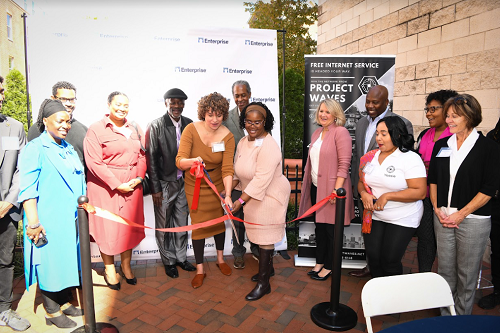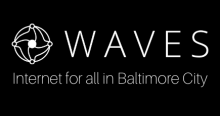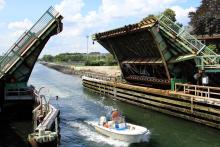Waves in Baltimore Gets $2 Million To Deploy Fiber To More Apartment Complexes
The City of Baltimore is using $2 million of its American Rescue Plan Act (ARPA) funding to bring fiber to 12 new city apartment buildings. It’s the latest effort in the city’s attempt to bridge the digital divide and bring affordable Internet access to long-marginalized communities.
According to the formal announcement from the Baltimore Mayor’s Office, Mayor Brandon Scott and the Baltimore Office of Broadband and Digital Equity (OBDE) have awarded the $2 million grant to Waves, a nonprofit formerly known as Project Waves.
“This grant program is more than just wires and signals – it’s about unlocking opportunity,” Scott said of the announcement. “By partnering with Waves, we’re ensuring residents with the greatest need have a chance to learn, connect, and build a better future for themselves and their families.”

Waves was first launched in 2018 in direct response to the Trump FCC’s repeal of net neutrality and the general failures of federal telecom policy to address digital inequity. Project Waves (profiled by ILSR last year) initially used Point-to-Multipoint wireless connectivity to deliver free wireless broadband service to about 300 multi-dwelling unit (MDU) residents.
In the last few years, the organization has shifted to Hybrid Fiber Coaxial connectivity to provide more reliable connectivity by running fiber to the buildings and leveraging the existing wiring in the multi-dwelling units it serves, providing access to more than 1,000 local Baltimore residents, at no cost to residents.



